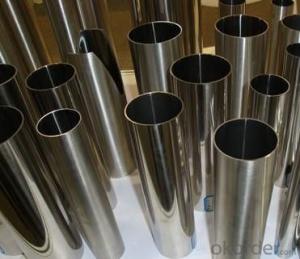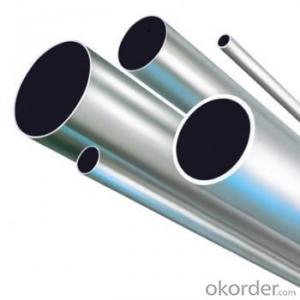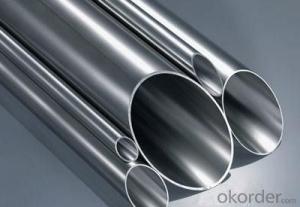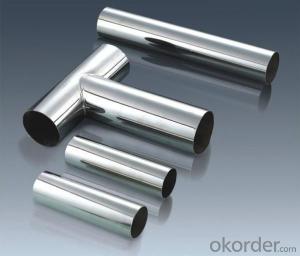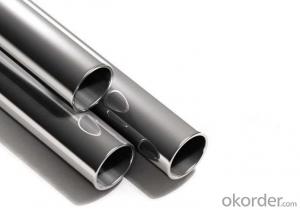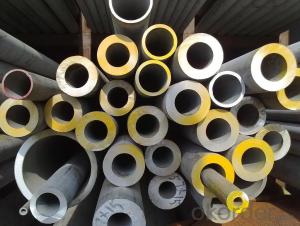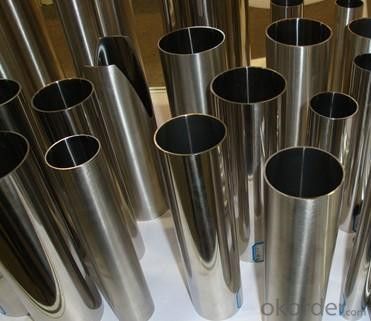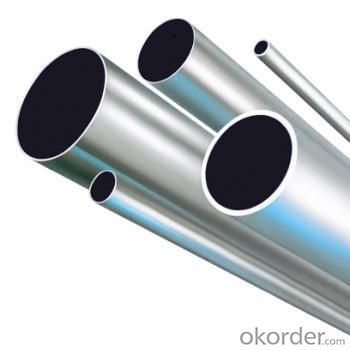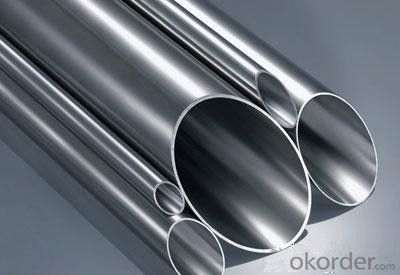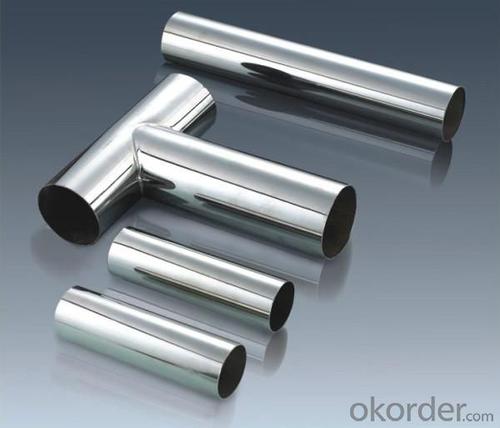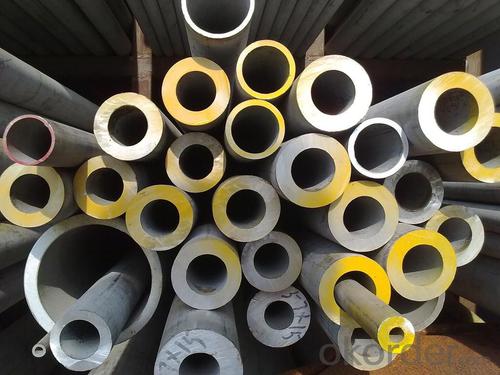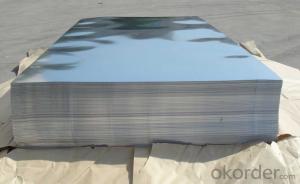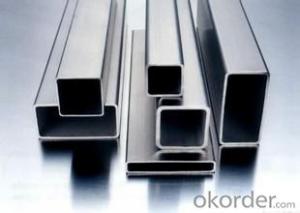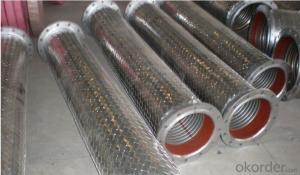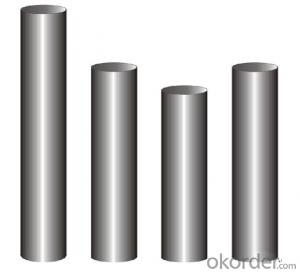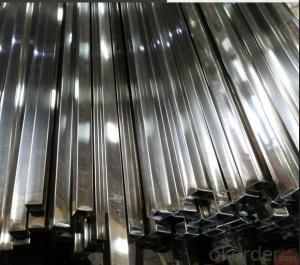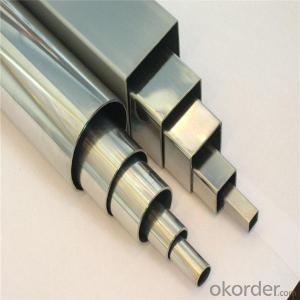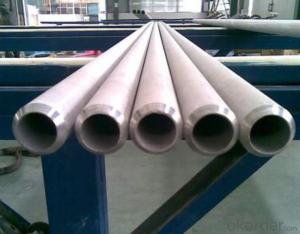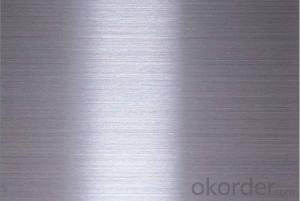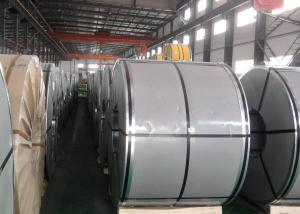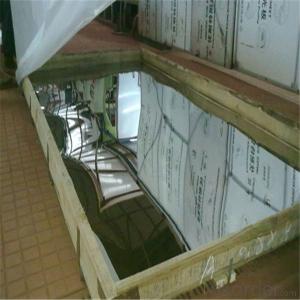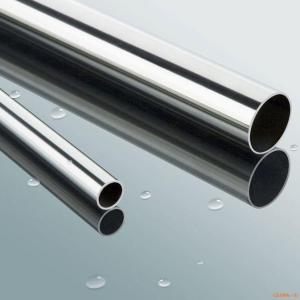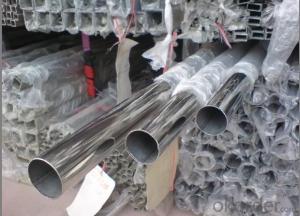201 304 2B Stainless Steel Pipes
- Loading Port:
- China main port
- Payment Terms:
- TT OR LC
- Min Order Qty:
- 5 m.t.
- Supply Capability:
- 100000 m.t./month
OKorder Service Pledge
Quality Product, Order Online Tracking, Timely Delivery
OKorder Financial Service
Credit Rating, Credit Services, Credit Purchasing
You Might Also Like
Specification
Standard:
AISI,JIS,GB,BS,DIN,API,EN,ASTM
Technique:
Hot Rolled,Cold Rolled,Cold Drawn,ERW,Forged,Saw,Extruded,EFW,Spring
Shape:
U Channel,Square,C Channel,Hexagonal,Round,Rectangular,Oval,LTZ
Surface Treatment:
Galvanized,Coated,Copper Coated,Color Coated,Oiled,Dry,Chromed Passivation,Polished,Bright,Black,PVDF Coated
Steel Grade:
Q195,Q215,Q235,Q215B,Q235B,RHB335,HRB400,200 Series,300 Series,400 Series,600 Series,SS400-SS490,10#,20#,A53(A,B)
Certification:
ISO,SGS,CE
Thickness:
as required
Length:
12m
Net Weight:
as required

201 304 2B Stainless Steel Pipes
Specifications
Description: 301 304 410 430 stainless steel pipes with ASTM JIN standard
Material: 200#, 240#,320#,500#,600#, etc.
Outside Diameter: 9mm~216mm
Wall thickness: 0.3 mm ~ 3.0 mm
Length: as your requirement
Application: best selling stainless steel pipes applies to petroleum, chemical industry, electric power, boiler, high temperature resistan
Technique: cold rolled
Standard: AISI, ASTM, GB, JIS
Products Show
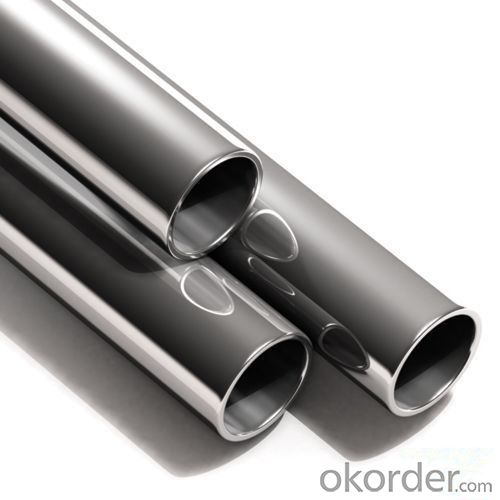
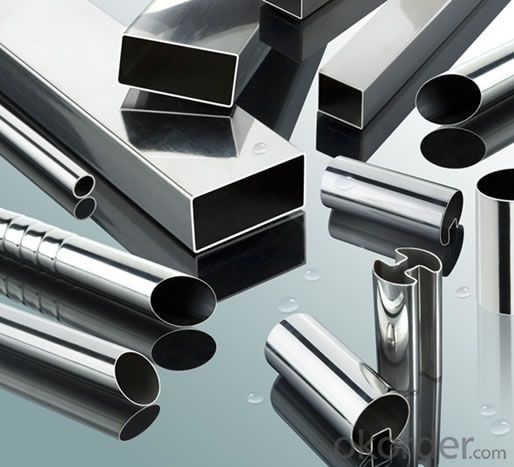
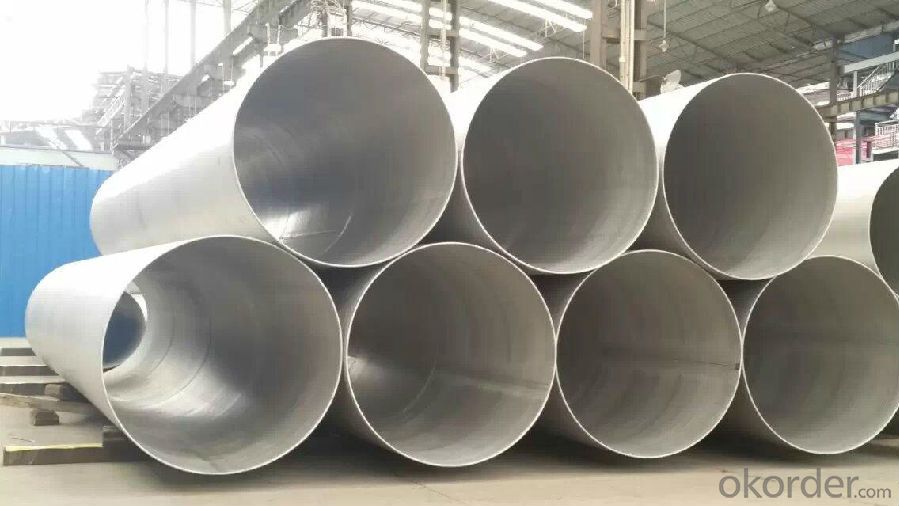
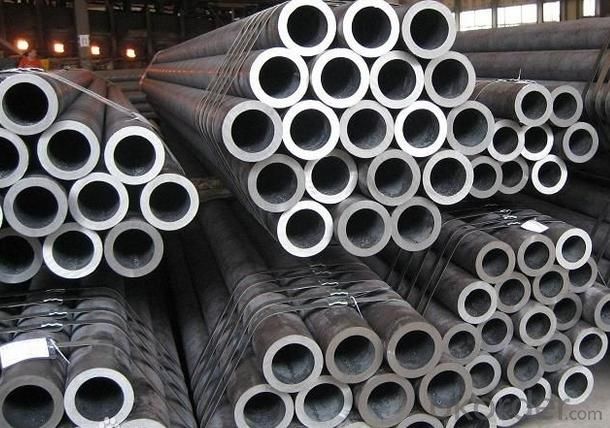
- Q: Can stainless steel pipes be used for oil refineries?
- Stainless steel pipes are indeed suitable for use in oil refineries due to their durability and resistance to corrosion. This material is capable of handling a wide range of fluids and chemicals commonly found in such facilities. Moreover, the strength and ability to withstand high temperatures and pressure make stainless steel pipes perfect for the transportation and processing of crude oil, refined petroleum products, and other hydrocarbons within the refining industry. Notably, these pipes exhibit outstanding corrosion resistance, which is vital in environments where oil and various chemicals are present. This resistance is instrumental in preventing leakage and ensuring the integrity of the piping system, ultimately enhancing the safety and efficiency of oil refinery operations.
- Q: Can stainless steel pipes be used for underground drainage systems?
- Yes, stainless steel pipes can be used for underground drainage systems. Stainless steel is durable, corrosion-resistant, and can withstand the harsh underground conditions, making it a suitable choice for underground drainage systems.
- Q: What are the different types of stainless steel pipe fittings?
- There are several types of stainless steel pipe fittings, including elbow fittings, tee fittings, cross fittings, reducer fittings, and coupling fittings.
- Q: Can stainless steel pipes be used for water treatment plants?
- Water treatment plants can indeed utilize stainless steel pipes. For water treatment purposes, stainless steel pipes offer numerous advantages. Firstly, their resistance to corrosion is highly beneficial in environments where pipes constantly come into contact with water and chemicals. This resistance ensures that the pipes remain durable and long-lasting, thereby reducing maintenance and replacement costs. Moreover, stainless steel pipes possess exceptional hygienic properties. Their non-porous nature prevents the absorption and retention of contaminants, ensuring that the water remains clean and uncontaminated throughout the treatment process. Consequently, stainless steel pipes are ideal for applications that require a high degree of cleanliness and purity, such as water treatment plants. Furthermore, stainless steel pipes are renowned for their strength and reliability. They can withstand high pressures and temperature fluctuations, thereby making them suitable for the demanding conditions frequently encountered in water treatment plants. Additionally, stainless steel pipes exhibit excellent mechanical properties, including high tensile strength and impact resistance, which further enhance their suitability for water treatment applications. In conclusion, stainless steel pipes are an excellent choice for water treatment plants due to their corrosion resistance, hygienic properties, and strength. They provide a durable, reliable, and sanitary solution for transporting water and chemicals during the treatment process.
- Q: Can stainless steel pipes be insulated with neoprene?
- Neoprene insulation is capable of being applied to stainless steel pipes. Neoprene, a highly adaptable and long-lasting material renowned for its exceptional insulation qualities, is frequently employed to insulate a variety of pipe types, including stainless steel. Neoprene insulation can successfully lessen heat loss or gain, avert condensation, and furnish defense against extreme temperatures. Additionally, it possesses resistance to moisture, chemicals, and UV radiation, rendering it an appropriate choice for a diverse array of applications. Correct installation of neoprene insulation can effectively heighten the energy efficiency and performance of stainless steel pipes.
- Q: Are stainless steel pipes fire-resistant?
- Yes, stainless steel pipes are fire-resistant. Due to their high melting point and excellent heat resistance, stainless steel pipes can withstand extreme temperatures and prevent the spread of fire, making them a reliable choice for fire protection systems.
- Q: Can stainless steel pipes be insulated with polyvinylidene fluoride?
- Certainly. Polyvinylidene fluoride (PVDF) is capable of insulating stainless steel pipes effectively. PVDF, a polymer known for its exceptional durability and resistance to high temperatures, is frequently employed for insulation purposes. Due to its impressive chemical resistance, UV stability, and flame retardant characteristics, PVDF is an ideal choice for insulating stainless steel pipes in a wide range of applications. By utilizing PVDF insulation, heat loss or gain can be minimized, corrosion can be prevented, and the stainless steel pipes can be provided with added mechanical protection.
- Q: What are the different grades of stainless steel used in pipes?
- Pipes commonly utilize various grades of stainless steel, each possessing distinct properties and characteristics. Notable grades include: 1. Stainless Steel Grade 304: Recognized as highly versatile and widely employed, Grade 304 exhibits non-magnetic qualities, exceptional resistance to corrosion, and ease of weldability. Its applications predominantly revolve around sectors emphasizing hygiene and cleanliness, such as food processing plants, hospitals, and the pharmaceutical industry. 2. Stainless Steel Grade 316: Renowned for its unparalleled resistance to corrosion, particularly in environments abundant in chloride or saltwater exposure, Grade 316 frequently finds utilization in marine settings, chemical processing facilities, and coastal areas necessitating robust corrosion resistance. 3. Stainless Steel Grade 321: Grade 321 boasts titanium stabilization, rendering it more impervious to sensitization and intergranular corrosion at elevated temperatures. It commonly serves in high-temperature scenarios, exemplified by exhaust systems, furnaces, and heat exchangers. 4. Stainless Steel Grade 409: Designed specifically for high-temperature applications like automotive exhaust systems, Grade 409 showcases remarkable heat resistance and exhibits low thermal expansion properties, making it an ideal choice for enduring extreme temperatures. 5. Stainless Steel Grade 904L: Grade 904L excels in corrosion resistance, particularly combating pitting and crevice corrosion. Frequently employed in aggressive environments prevalent in chemical processing plants, offshore oil and gas platforms, and pulp and paper industries. These examples merely exemplify the array of stainless steel grades employed in pipe manufacturing. The selection of a particular grade hinges upon the specific application and desired attributes, encompassing corrosion resistance, temperature resistance, and mechanical strength.
- Q: Difference between stainless steel and steel pipe
- 2. welded steel pipe for different welding process and divided into the furnace pipe welding (ERW) pipe and automatic arc welding, because of the different forms of welding seam welded pipe and spiral welded pipe is divided into two kinds, end its shape is divided into circular welded and shaped (square, flat) pipe.The welded pipe is rolled into the steel tubular to sew or spiral seam welded in the manufacturing method, and is divided into low pressure fluid delivery with welded steel pipe, spiral welded steel pipe, welded steel pipe, welded pipe roll etc.. Seamless steel pipe can be used in various industries, such as liquid, pneumatic, pipeline and gas pipeline. Welding pipes can be used in water pipelines, gas pipelines, heating pipes, electrical appliances, pipelines and so on.
- Q: Can stainless steel pipes be insulated with polyethylene naphthalate?
- Indeed, polyethylene naphthalate (PEN) is a viable option for insulating stainless steel pipes. PEN, a top-notch thermoplastic material, boasts impressive insulation capabilities. Its low thermal conductivity qualifies it to effectively insulate pipes, guarding against heat loss or gain. Moreover, PEN exhibits commendable resistance to chemicals, moisture, and UV radiation, making it a robust choice for pipe insulation. Nevertheless, it is crucial to verify the compatibility of the chosen insulation material with the unique application and operating conditions to guarantee optimal performance and durability.
Send your message to us
201 304 2B Stainless Steel Pipes
- Loading Port:
- China main port
- Payment Terms:
- TT OR LC
- Min Order Qty:
- 5 m.t.
- Supply Capability:
- 100000 m.t./month
OKorder Service Pledge
Quality Product, Order Online Tracking, Timely Delivery
OKorder Financial Service
Credit Rating, Credit Services, Credit Purchasing
Similar products
Hot products
Hot Searches
Related keywords
